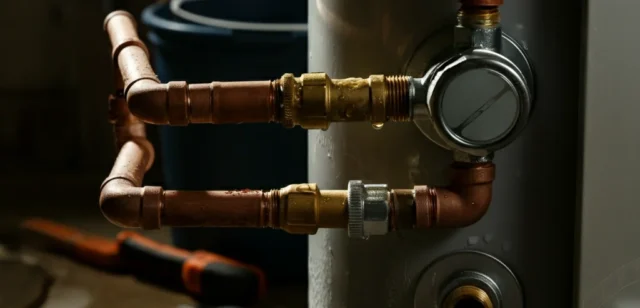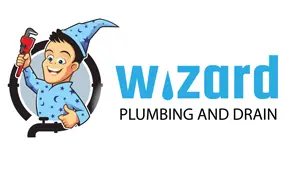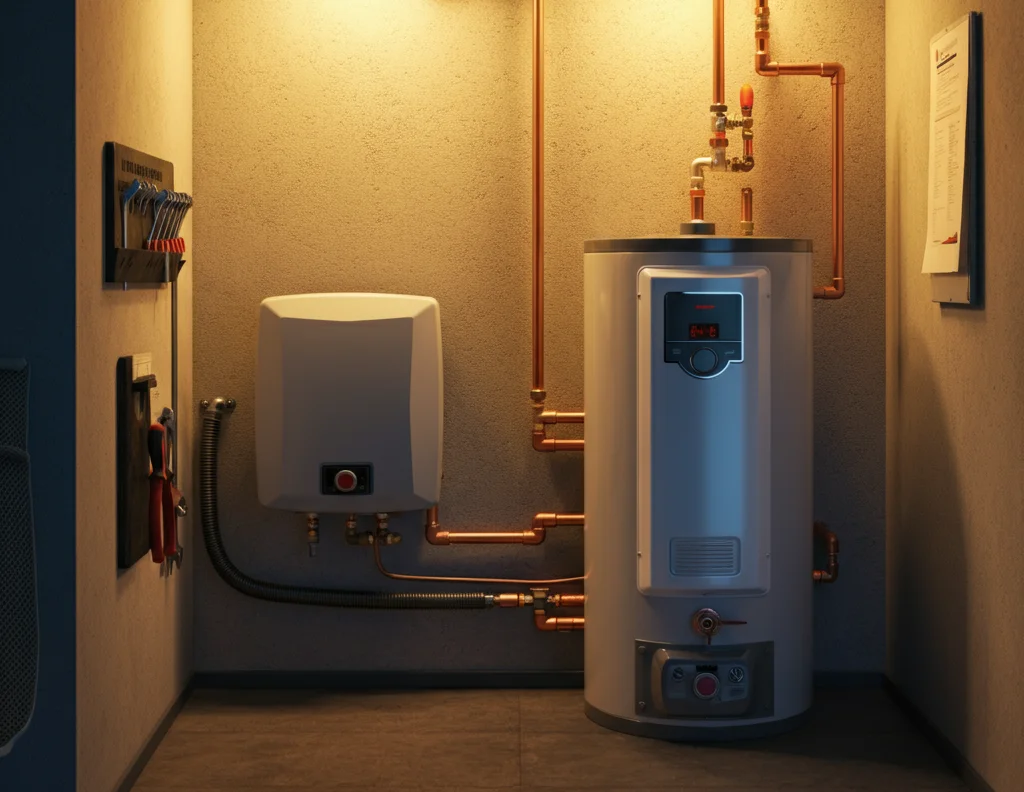As a homeowner, your water heater is essential to your daily comfort, providing hot water for showers, cleaning, cooking, and more. But, like all appliances, water heaters have a limited lifespan and can eventually fail. Unfortunately, a malfunctioning or failing water heater can lead to costly repairs and even flooding in your home. The good news is that many water heater problems can be detected early, helping to prevent significant damage and maximize the lifespan of your system.
In this blog, we’ll cover the top 5 signs your water heater is failing, and how early intervention can prevent further damage, saving you money on future repairs.
1. Lack of Hot Water
One of the most obvious signs that your water heater is failing is the absence of hot water. If you turn on the tap and nothing comes out but cold water—or if your water is lukewarm instead of hot—something’s wrong. It could be an issue with the pilot light or a more significant internal problem.
Why This is Bad: If your water heater is failing to heat water, it could be due to sediment buildup, a malfunctioning thermostat, or a failed heating element. In severe cases, the tank might be rusting, which can cause permanent damage.
What You Can Do: Check your water heater’s thermostat settings and ensure the pilot light is on. (If you need help finding these parts, consult your owner’s manual.) If everything seems normal, but you’re still not getting hot water, it might be time to contact a professional plumber to inspect and repair the unit. Give us a call at Wizard Plumbing & Drain for any questions or scheduling.
2. Noisy Water Heater (Popping or Knocking Sounds)
If your water heater starts making strange noises, such as popping or knocking sounds, it’s often an indication that there is a significant buildup of sediment at the bottom of the tank. This is a common issue in areas with hard water, where minerals like calcium and magnesium accumulate over time.
Why This is Bad: As the sediment layer builds, your water heater is forced to work harder to heat the water, which can lead to overheating and damage. Eventually, the extra strain on the system can cause the tank to fail or leak.
What You Can Do: Flush your water heater to remove sediment buildup and restore optimal performance. If you’re not comfortable doing this yourself, contact a licensed plumber at Wizard Plumbing & Drains to handle the task as part of your annual maintenance.

3. Rusty or Brownish Hot Water
If you notice that the hot water from your taps is rusty or brownish, it’s a sign that your water heater may be rusting internally. This usually happens when the anode rod, a component that helps protect the tank from rust, has expired.
Why This is Bad: Beyond being unpleasant to use, rusty water indicates that your tank is deteriorating. A rusting tank is highly prone to leaks and, in severe cases, ruptures. If you continue to use it, you could be risking water damage to your home.
What You Can Do: Inspect the anode rod and replace it if it’s corroded. If the damage to the tank is significant, it may be necessary to replace the entire water heater to prevent further issues.
4. T&P Valve Leaking or Not Functioning Properly
The temperature and pressure (T&P) valve on your water heater is a crucial safety feature designed to release pressure from the tank if it gets too high. If this valve is leaking or doesn’t function properly, it can be a sign of a bigger problem.
Why This is Bad: A malfunctioning T&P valve can lead to dangerous pressure buildup inside the tank, potentially causing the tank to explode. Although rare, this can cause serious damage and pose a significant safety risk to your home.
What You Can Do: Test the T&P valve by lifting the test lever to ensure hot water is released. If no water comes out or there’s a persistent leak, the valve needs to be replaced immediately. It’s also a good idea to have a plumber inspect your water heater to ensure everything works correctly.
5. Leaking Water Heater Tank
A leaking water heater is one of the most serious signs that your system is in danger of failure. Leaks may occur around the base of the tank, where rust and corrosion have weakened the material, or around the valves and fittings.
Why This is Bad: Even a small leak can worsen over time, leading to water damage, mold growth, and costly repairs. If the tank completely ruptures, you could face extensive damage to your home and property.
What You Can Do: If you notice a leak, shut off the water supply to the tank immediately and call a plumber. Depending on the severity of the leak, you may need to replace the entire water heater. Regular inspections can help identify issues before they lead to a full-blown leak.
Conclusion: Maintain Your Water Heater for Long-Term Efficiency
Water heater problems can escalate quickly, but regular maintenance and early detection can help you avoid expensive repairs and dangerous situations. If you notice any of the signs mentioned above, it’s important to take action quickly to prevent further damage.
Manufacturers recommend having your water heater inspected once a year to ensure it’s working efficiently. Regular maintenance will extend the life of your water heater and ensure your home remains comfortable and safe. If you’re unsure how to do these checks or need expert help, don’t hesitate to call Wizard Plumbing & Drain. Our team is here to help keep your home plumbing system in top condition!
Stay ahead of potential issues and keep your water heater running smoothly all year long!
If You Need Help, Wizard Plumbing & Drains Is a Call Away!
Whether you need plumbing repairs, maintenance, or a new system installation, Wizard Plumbing & Drains is here to help! Our expert team is ready to handle all your plumbing needs, from water heaters to pipe issues and everything in between. Reach out today for reliable and professional service!

